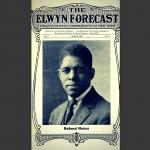Description
Concert program for a performance of Rossini's The Barber of Seville, a comic opera. The music was directed by Michael Arenstein. The opera was presented by The Opera Club under the auspices of and for the benefit of Waverly Baby Home.
Related content
Collections with this item
Details
Creator
Transcription
The Barber of Seville (In English) COMIC OPERA Libretto by STERBINI Music by ROSSINI Presented by THE OPERA CLUB Under the Auspices of and for the Benefit of WAVERLY BABY HOME of PORTLAND, OREGON Concert Hall, Neighbors of Woodcraft Building 8:30 P.M. Thursday, April 2, 1936 first portland performance STAFF (For the Company) Stage Director Doris Smith Musical Director Michael Arenstein Costumes Designed by Miss Elizabeth Dombrowsky Scenic and Lighting Directors Messrs. Kneeland and King Accompanist and Coach Miss Agnes Love Photographer Miss Gladys Gilbert FOR WAVERLY BABY HOME Mr. Homer D. Angell Mrs. W. L. Block Dr. J. B. BILDERBACK Mrs. Edgar M. Burns Mrs. Allan Bynon Mrs. John Church Mrs. A. F. Flegel Mrs. Charles C. Hall Mrs. F. R. Hunter Mr. L. E. Kern Mrs. Joseph Loeb Mrs. Nell Rothwell May Mrs. J. D. Mayer Mrs. M. G. Nease Mrs. K. J. Nordberg Mrs. Knud Roald Mrs. John H. Scott Mr. Joseph Shemanski Mrs. Charles E. Snell Mr. Lawrence Teeple Mrs. Andre Wolff Mrs. George W. Joseph, Chairman Grateful acknowledgment is made of courtesies and assistance given by Portland Hotel; Ellison-White Conservatory; Y. M. C. A.; Mr. William Maylon; Miss Martha Reynolds; and Messrs. W. E. Boyd, Ross M. Finnegan and Dick Dietrich,pf Benson Hotel. SUMMARY OF SCENES Act I, Scene i: Street in front of Dr. Bartolo's house. Dawn of morning. Scene 2: In Dr. Bartolo's house. That morning. Act II: In the music room. Afternoon and evening. Seville, late eighteenth century. The opera is based on Beaumarchais' play "Le Barbier de Seville" first produced in Paris in 1775. Rossini's opera was first performed on February S, 1816, at the Teatro Argentina, Rome. CAST OF CHARACTERS (In order of appearance) Fiorello, servant of Count Almaviva Mr. Hale Prebble Count Almaviva Mr. Arthur Johnson Figaro, a barber Mr. William H. Elliott Rosina Mrs. Roma F. Church Dr. Bartolo, her guardian Mr. William Gynther Bertha, his housekeeper Miss Violet Burlingham Ambrosius, servant of Dr. Bartolo Mr. Jacob Zeller Don Basilio, a man of sundry affairs Mr. Gene Cusick An officer of the Guard Mr. Hale Prebble A Notary Mr. Rickey Musicians and Soldiers Messrs.: K. Goodman, M. Levine, Freund, E. Gardner, B. Foster, Brune, Rickey, F. Rowe, and J. Zeller. THE STORY The Count Almaviva, desperately in love with Rosina, the ward of Dr. Bartolo, after serenading his love, encounters Figaro, the barber and factotum of the town, a meddling busy-body; to him the Count confesses his love, and they mutually plot for the purpose of bringing about the introduction of Almaviba to the maiden. Rosina is strictly watched by her guardian, Dr. Bartolo, who cherishes a desire of wedding his ward himself; in this design he is assisted by Basilio, a music-master. Rosina returns the affection of the Count, to whom, in spite of the watchfulness of her guardian, she contrives to convey a letter, declaring her passion, and her intention to break through her trammels, and at the same time requesting his name. To obtain an interview with his lady-love the Count disguises himself as a drunken soldier, and forces his way into Bartolo's house. Rosina has already been told by Figaro that the name of the Count is Signor Lindor. The disguise of Almaviva is discovered by the guardian, the pretended soldier is placed under arrest, and the first act concludes. In the second act the Count again enters Bartolo's house, disguised as a music-teacher, pretending that he has been sent by Basilio to give a lesson in music, on account of the illness of the latter. To obtain the confidence of Bartolo, he produces Rosina's letter to himself, and offers to persuade Rosina that the letter has been given to him by a mistress of the Count, and thus to break off the connection between the two. He obtains the desired interview, which proceeds satisfactorily, and Figaro manages to obtain the keys of the balcony, while at the same time an escape is determined on at midnight, and a private marriage arranged. In the meantime, Basilio himself makes his appearance, the lovers are disconcerted, and the Count makes his escape. Bartolo, who possesses the letter of Rosina written to the Count, succeeds, by producing it, in exciting the jealousy of his ward, who, while under the influence of this feeling, discloses the plan of escape which had been arranged, and agrees to marry her guardian. At the appointed time Figaro and the Count make their appearance, and after some confusion the lovers are reconciled. A notary, procured by Bartolo, celebrates the marriage of the enamored pair. Immediately afterwards the guardian enters, accompanied by the officers of justice, into whose hands he is about to consign Figaro and the Count, when mutual explanations take place, and all parties are reconciled. (Beaumarchais' play was a political and social satire on the pre-revolu-tionary society of his time. In the opera, however, the satirical implications of the story are eliminated in favor of opera buff a, leaning closer to burlasque than to satire.)
Extent
- 4 pages
Contributors
Digital Publisher
Subject.Topic
Subject.Place
Language
Rights & Usage
Rights undetermined (the copyright and related rights status of this work is unknown).
Identifier
- XXtxt_000311
Type
Date.Created
April 2, 1936




















































Add new comment